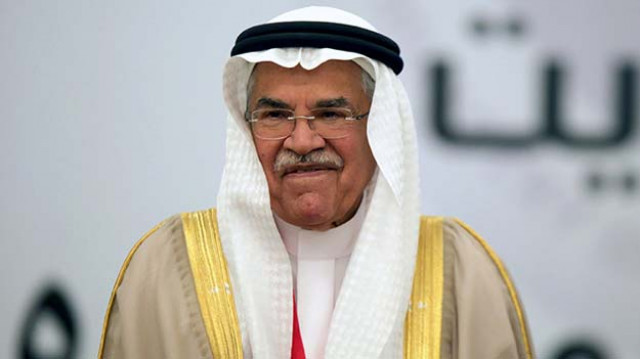Collaborative effort: S Arabia urges cooperation from non-OPEC members
All must contribute to improve prices, says oil minister Naimi.

Ali al-Naimi PHOTO: AFP
“We refuse to take responsibility alone because Opec produces 30% of market output and 70% comes from outside,” he said in remarks carried by the Saudi Press Agency (SPA).
Crude prices slumped about 60% between June and February, weighed down by a glut of global supplies and concerns about stalling demand. The slide was exacerbated in November when Opec refused to cut production to rescue falling prices, saying it wanted to maintain its market share.
The 12-member group, led by top producer Saudi Arabia, pumps around a third of the world’s oil but other major producers, such as Russia, are not tied by its decisions.
Asked whether Opec would be willing to work with non-members, Naimi pointed to the crash of 1998, when the cartel cooperated with other producers to cut output and support oil prices.
“Today, the situation is difficult. We tried, met with them but did not succeed because they insisted that Opec should take the responsibility alone,” said Naimi, in reference to talks with non-Opec producers ahead of the cartel’s meeting in November.
“All must contribute if we want to improve prices because it is in the interest of all,” he said, adding the kingdom had the capacity to supply any new client with crude.
The Saudi minister also defended the oil policy of Gulf states, saying they were taking measures to stabilise the market. “We are not against anyone. We are with all to support stability in the market and to support a balance between supply and demand.”
Saudi Arabia and its Gulf partners have been criticised for allegedly using oil as a political weapon against countries within and outside Opec. According to Bloomberg, the country pumped 9.85 million barrels a day in February.
Published in The Express Tribune, March 24th, 2015.
Like Business on Facebook, follow @TribuneBiz on Twitter to stay informed and join in the conversation.


















COMMENTS
Comments are moderated and generally will be posted if they are on-topic and not abusive.
For more information, please see our Comments FAQ